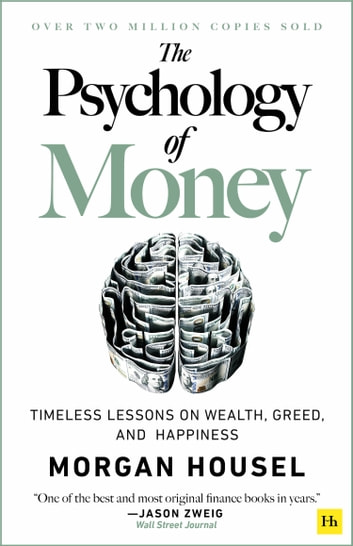
Main Characters
In “The Psychology of Money,” the primary characters are not individuals in a traditional narrative sense but rather the concepts and behaviors surrounding money itself. Morgan Housel, the author, personifies various attitudes and psychological traits that people exhibit regarding wealth, investment, and financial decision-making.
The protagonist, in a way, is the average person navigating the complexities of financial life. This character embodies the struggles, aspirations, and often irrational behaviors that accompany the pursuit of wealth. The motivations of this character stem from a desire for security, freedom, and happiness, which many equate with financial success.
On the other hand, societal pressures and misconceptions about money cloud judgment, serving as the antagonist in the narrative. These include the constant comparisons to others, the allure of instant gratification, and the overwhelming influence of media narratives that often promote a skewed understanding of wealth.
Throughout the book, Housel explores various key figures in finance, such as Warren Buffett, who exemplifies patience and long-term thinking, and contrasts them with the impulsive behaviors of less successful investors. These character analyses serve to highlight the diverse motivations driving financial decisions and the psychological barriers that can hinder financial success.
Plot
The plot of “The Psychology of Money” unfolds through a series of essays rather than a traditional narrative structure. Each chapter presents a unique story or lesson about money, illustrating the psychological factors that influence financial behavior. The main conflict revolves around the struggle between rational financial decision-making and the emotional impulses that often lead people astray.
As the book progresses, Housel develops the idea that understanding human psychology is crucial for making sound financial decisions. He emphasizes that financial success is less about knowledge of markets and more about behavior. The resolution comes through Housel’s insights into how individuals can cultivate better financial habits by recognizing and addressing their psychological biases.
Setting
The setting of “The Psychology of Money” spans a broad historical and cultural context rather than being confined to a specific time or place. Housel draws on examples from various periods, illustrating how attitudes toward money have evolved over time. He references historical events, economic cycles, and personal anecdotes that resonate with readers from different backgrounds.
This setting influences the characters and events by providing a rich tapestry of experiences that shape our understanding of money. By situating financial behavior within a larger societal framework, Housel demonstrates how external factors, such as economic conditions and cultural norms, impact individual financial decisions.
Themes
Several underlying themes emerge throughout “The Psychology of Money.” One of the most prominent is the idea that financial success is not solely determined by intelligence or knowledge but by behavior and mindset. Housel emphasizes the importance of patience, humility, and long-term thinking in achieving financial goals.
Another significant theme is the relationship between money and happiness. Housel argues that while money can provide comfort and security, true happiness comes from the ability to control one’s time and make choices that align with personal values. This theme resonates deeply in a world where materialism often overshadows genuine fulfillment.
Additionally, the book explores the concept of risk and uncertainty in financial decision-making. Housel encourages readers to embrace the unpredictable nature of markets and to develop a mindset that accepts volatility as a part of the investment journey.
Author’s Narrative Style
Morgan Housel’s narrative style is engaging, conversational, and accessible. He employs storytelling techniques to illustrate complex financial concepts, making them relatable to a wide audience. Housel uses anecdotes, historical examples, and personal reflections to convey his messages, creating a compelling reading experience.
The tone of the book is reflective and thought-provoking, inviting readers to reconsider their beliefs about money. Housel writes with humility and understanding, acknowledging that emotions often drive financial behavior more than logic.
Author’s Point of View
By assuming this perspective, Housel can effectively analyze the behaviors and motivations of different individuals without being confined to a single character’s viewpoint. This approach enhances the book’s depth and encourages readers to reflect on their own relationships with money.. This narrative choice enables him to present a diverse range of stories and insights, enriching the reader’s understanding of the psychological aspects of financial decision-making.
Analysis of behaviors and motivations of different individuals can effectively be done by Housel without being confined to a single character’s viewpoint, by adopting the perspective above. This approach enhances the book’s depth and encourages readers to reflect on their own relationships with money.
Personal Reflection
Reading “The Psychology of Money” has been a transformative experience for me. Housel’s insights into the psychological factors that influence financial behavior resonated deeply, prompting me to reflect on my own attitudes toward money. The book challenges conventional wisdom and encourages a more nuanced understanding of wealth accumulation.
In today’s fast-paced world, where financial success is often equated with material possessions, Housel’s emphasis on the importance of controlling one’s time and prioritizing happiness is particularly relevant. His arguments about the psychological aspects of investing and the dangers of comparing oneself to others are timely reminders in an age dominated by social media.
Moreover, Housel’s anecdotes and real-life examples make the book relatable and engaging. His ability to weave personal stories with broader financial principles creates a compelling narrative that lingers long after reading.
Conclusion
In conclusion, “The Psychology of Money” by Morgan Housel offers profound insights into the complex relationship between human behavior and financial decision-making. Through a series of engaging essays, Housel explores the psychological factors that shape our attitudes toward money, emphasizing the importance of behavior over knowledge.
The book’s themes of patience, humility, and the pursuit of happiness serve as guiding principles for readers seeking financial well-being. Housel’s narrative style and third-person perspective create an accessible and thought-provoking reading experience.
Ultimately, “The Psychology of Money” is not just a guide to financial success; it is a reflection on the deeper meanings of wealth and fulfillment. It encourages readers to cultivate a healthier relationship with money, reminding us that true wealth lies not in material possessions but in the freedom to live life on our own terms.
Citations:
[1] https://www.goodreads.com/book/show/41881472-the-psychology-of-money


